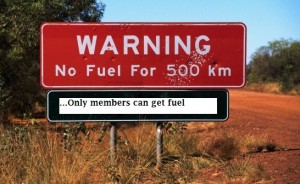‘Petrol price could have been at K590 if govt didnt intercept – Lipenga
Published on May 16, 2012 at 5:51 PM by FACE OF MALAWI
Minister of Finance Ken Lipenga has revealed that the price of petrol could have reached K590 per litre had some taxes and levies on petroleum prices not been removed by the government when the prices were being adjusted.
“Notice that if fuel were to be adjusted by the full impact of the devaluation, new pump prices for diesel and petrol would have been about K100 higher than those announced,” Lipenga told a pre-budget consultation meeting in Blantyre on Monday.
He said, however, that in order to make fuel affordable, the government reduced duties and taxes on fuel so that the price increase was not as dramatic.
He said, however, the removal of some levies made it possible for the prices to be adjusted at K100 less than proposed prices.
The Malawi Energy Regulatory Authority (Mera) on Friday hiked the pump price for petrol from K380 to K490/litre, representing a 29 percent increase while the price of diesel jumped from K360 to K475/litre, representing a 32 percent hike.
Mera kept the price of paraffin for domestic use at K171 per litre, but hiked the price of industrial paraffin to K388/litre.
Lipenga said the government has also removed some levies in the price build-up in order to moderate fuel price increase.
He could, however, not indicate the specific levies removed.
“To cushion the poor, the price of paraffin for domestic use has remained unchanged,” the minister said.
Friday’s fuel price increase has seen prices of commodities which went up due to the 48.8 percent devaluation of the kwacha, inching further upwards as businesses factored in costs of transport and importation of raw materials.
The government, through the Reserve Bank of Malawi (RBM), devalued the kwacha, initially moving it to K250 from K168 to the United States dollar.
A day after the fuel price adjustment, the Minibus Owners Association of Malawi (Moam) announced a minibus fare increase of between 30 to 50 percent.
The development has resulted in many commuters screaming as their earnings and take home packages have remained constant over the past couple of months.
The significant increase in transport costs has left many people who used to commute between townships in the country’s towns and cities, opting to walk as they try to save the little penny they have for the next day.



